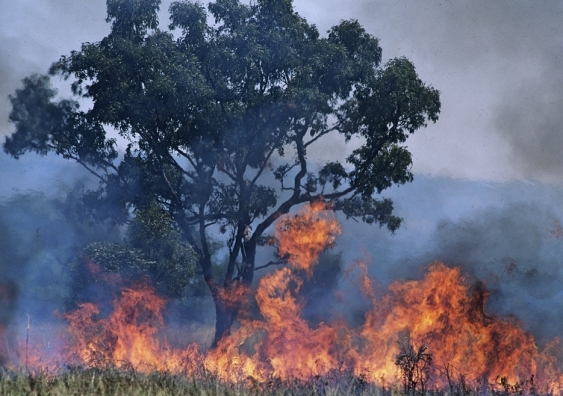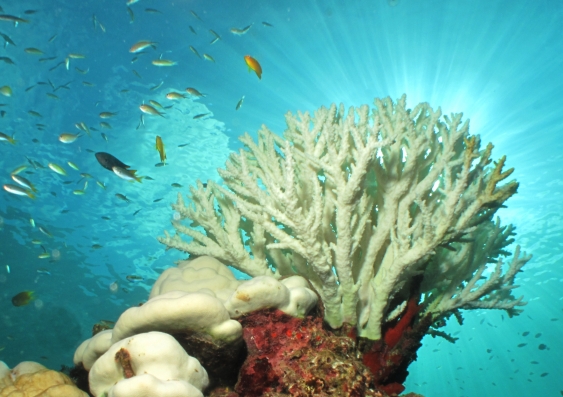Defective buildings, extreme heat and impact on industry
Last Christmas Eve, building defects were revealed in the Opal Tower apartment block, while faults emerged in Mascot Towers in mid-2019. As the mercury continues to soar, what impact does heat have on building defects? Dean of Engineering Professor Mark Hoffman can comment – he helped to investigate both buildings. Contact Larissa Mavros: 0452 229 349, l.mavros@unsw.edu.au And, where do these problems leave the building industry? Contact: Adjunct Lecturer Geoff Hanmer, UNSW Built Environment, 0419 700 033, g.hanmer@unsw.edu.au
Risk of power grid failures
It’s summer and air conditioners are working overtime, putting pressure on the power grid and increasing the risk of blackouts. Contact our Engineering academics: Dr Georgios Konstantinou 0405 700 943, g.konstantinou@unsw.edu.au and Dr Ke Meng 0478 011 954, ke.meng@unsw.edu.au
Drinking water running dry
We are in the midst of a crippling drought where some regional towns face the possibility of “day zero” – when their drinking water runs out. Professor Greg Leslie, Global Water Institute director, can discuss the water supply crisis as well as water treatment, reuse and desalination. Contact Prof Leslie: 0414 234 345, g.leslie@unsw.edu.au

The east coast of Australia is in the grip of a bushfire emergency this summer. Picture: Shutterstock
Bushfires, climate change and broader impact
The bushfire season started early this year and the Rural Fire Service reported at least 2.7 million hectares have burnt so far. What is the link between bushfires and climate change, and what is their wider impact on the environment, our water supply and our health?
- For climate change, contact: Alvin Stone, Media and Communications Manager, Centre for Climate Extremes, 0418 617 366, alvin.stone@unsw.edu.au
- For the effects of air pollution on health, contact: Dr Christine Cowie, Senior Research Fellow, UNSW Medicine, 0411 738 528, c.cowie@unsw.edu.au
- For the impact of bushfires on water quality and supply, contact: Professor Stuart Khan, UNSW Engineering, 0414 398 293, s.khan@unsw.edu.au
- For the effects of bushfires on native animals, contact: Professor Mike Letnic, UNSW Science, 0409 616 855, m.letnic@unsw.edu.au
Watch out for deadly flora and fauna this summer
Australia’s beautiful but deadly animals and plants pose dangerous challenges for the uninitiated – we are renowned for our many venomous animals and poisonous plants. Contact: Professor Mike Letnic, UNSW Science, 0409 616 855, m.letnic@unsw.edu.au
Healthy habits, healthy life
Don’t let your healthy habits lapse this silly season – you will be better for it. Lifestyle Clinic director Chris Tzarimas knows why: the exercise physiologist is a leading advocate for physical activity and lifestyle strategies to prevent or manage chronic disease. Contact Mr Tzarimas: 0408 117 440, c.tzar@unsw.edu.au
Fish kills, drought and river health
It’s been a year since there were a series of major fish kills, some reaching hundreds of thousands of casualties, in the Murray-Darling Basin last summer. What impact is the drought having on river health and do scientists expect more mass deaths this summer? Contact: Professor Richard Kingsford, Director of the Centre for Ecosystem Science, 0419 634 215, richard.kingsford@unsw.edu.au

Coral bleaching is a problem facing our fragile marine environment. Picture: Shutterstock
Coral bleaching and marine heatwaves
In 2020, the UNESCO World Heritage Committee is scheduled to review Australia’s management of the Great Barrier Reef World Heritage Area. The Reef suffered mass coral bleaching in 2016 and 2017. Do scientists expect more marine heatwaves and coral bleaching this summer? Contact: Associate Professor Tracy Ainsworth, UNSW Science, 0413 464 032, tracy.ainsworth@unsw.edu.au
Wage theft
Modern slavery – in the form of wage theft – hides in plain sight. Supermarket giants Woolworths and Coles are just some of the many big companies that were named and shamed for wage theft this year. Contact: Associate Professor Justine Nolan, UNSW Law, 0425 260 496, justine.nolan@unsw.edu.au
2019 HSC results
It’s the moment Australian high school students have been waiting for. The 2019 HSC results are out, potentially determining the future of thousands of young people. Contact Associate Professor Jihyun Lee, UNSW Arts & Social Sciences, 0406 780 457, jihyun.lee@unsw.edu.au
Nightlife and summer festivals
Sydney’s controversial CBD and Oxford St lockout laws are due to expire from January 14, 2020. What will this mean for the city’s night economy? Music festivals also ramp up during summer, throwing policing, regulation of festival spaces and sexual violence into the spotlight. Contact: Dr Phil Wadds, UNSW Arts & Social Sciences, 0422 443 255, p.wadds@unsw.edu.au

The scourge of domestic violence increases over the summer holiday period when families spend more time together. Picture: Shutterstock
Domestic violence spike
In previous years, the rate of domestic violence in New South Wales has seen an increase of 25 per cent during Christmas, with the rise in drinking being a contributing factor. The holiday season also means the shutdown of support services, leaving victims feeling alone and vulnerable. Contact: Associate Professor Jan Breckenridge, UNSW Arts & Social Sciences, 0409 550 735, j.breckenridge@unsw.edu.au
Women in film
The representation of women in film can elicit fierce public debate. For example, the moral lesson in Christmas flick Love Actually has been described as :“the less a woman talks, the more lovable she is”. And Star Wars: The Last Jedi was lauded and criticised for being one of the most “feminist” Star Wars movies yet. The new Star Wars: The Rise of Skywalker movie is already attracting sexist remarks on social media against leading female character, Rey. Contact: Associate Professor Jane Mills, UNSW Arts & Social Sciences, 0400 598 119, jane.mills@unsw.edu.au
Dumped pets
Every year, hundreds of pets are abandoned during the holiday season, according to the RSPCA. A related problem is the giving of pets as Christmas gifts which might lead to their abandonment when they become older or difficult to look after. Contact: Dr Siobhan O’Sullivan, UNSW Arts & Social Sciences, 0404 277 469, siobhan.osullivan@unsw.edu.au
Hong Kong protests
Pro-democracy protestors are swarming Hong Kong’s buzzing shopping malls during the peak Christmas retail period to demand political reform. With the world watching Hong Kong’s ongoing mass protests, what’s in store for its citizens in 2020? Contact: Professor Timothy O’Leary, UNSW Arts & Social Sciences, 0435 866 814, t.oleary@unsw.edu.au
Disability Royal Commission
The safety and wellbeing of people with disabilities living in group homes is the latest matter before the Disability Royal Commission. The Royal Commission continues until 2022. What have we learnt so far and what other key issues will arise? Contact: Rosemary Kayess, UNSW Arts & Social Sciences, 0402 040 586, r.kayess@unsw.edu.au
Keeping cool during heatwaves
Australia is already sweltering this summer and heat records have tumbled. How can we use sustainable methods to mitigate the heat in our urban environment? Contact: Professor Mattheos Santamouris, UNSW Built Environment, 0404 134 975, m.santamouris@unsw.edu.au

The mid-year update on the Federal Budget is out. Picture: Shutterstock
Budget surplus, monetary policy and economics
The Government has released the Mid-Year Economic and Fiscal Outlook which provides an update on the key assumptions made in this year’s Budget and tracks the impact of decisions made since for the forecast surplus. Contact: ARC Future Fellow Professor Richard Holden, UNSW Business School, 0409 446 296. Prof Holden can also discuss a range of economic topics including monetary policy, small business, organisational economics, the political economy, law and economics, macroeconomics and interest rates.
Banks behaving badly
Westpac has been accused of the biggest breach of money laundering and terrorism financing laws in Australian history. What’s more, another ACCC inquiry and further banking reform loom. Contact: Associate Professor Mark Humphery-Jenner, UNSW Business School, 0412 965 340, mlhj@unsw.edu.au A/Prof Humphery-Jenner can also comment on other corporate governance law and finance topics.
How to keep New Year’s resolutions
As the year ends many of us will make New Year’s resolutions but not everyone will realise them – why is success futile for some? Contact: Associate Professor Peter Heslin, UNSW Business School, heslin@unsw.edu.au A/Prof Heslin can also discuss other topics such as career adaptability and success, performance facilitation and managerial development.
Pitfalls with smart technology
Smart devices are popular Christmas gifts – especially for children – but as we become more technologically connected, we become more vulnerable to our private information being stolen and other problems. Senior lecturer Kayleen Manwaring, UNSW Business School, can discuss Internet of Things technology, as well as emerging technologies, contract law, and consumer protection and competition law (unavailable 3 January). Contact: Ebony Stansfield, 0434 904 669.
Superannuation and retirement funds
The Government is being urged to take a slow approach to including primary dwellings in the age pension assets test. Contact: Associate Professor Anthony Asher, UNSW Business School, 0424 003 257 (has limited mobile coverage, unavailable Christmas Day). A/Prof Asher can also discuss other topics including the design of appropriate life and superannuation benefits, retirement funding investment, social justice and implications for institutional governance and regulation.






